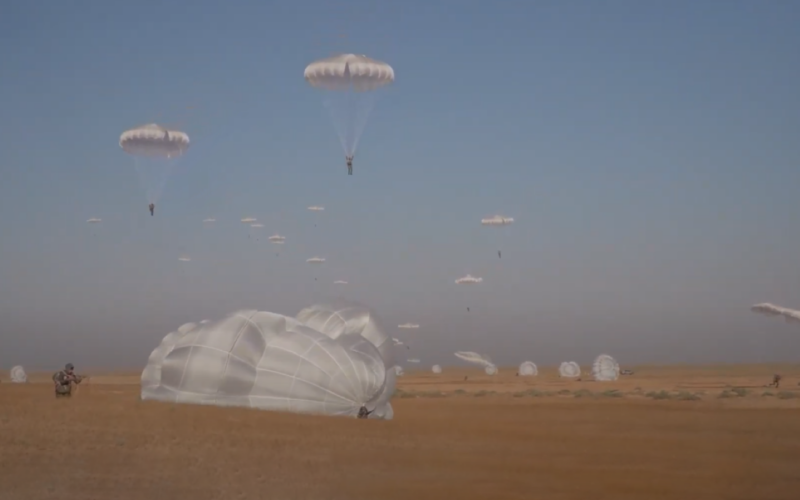The Syrian Arab Army’s 25th Special Forces Division, under the supervision of Russian instructors, completed a number of parachute training drills using Russian military aircraft.
During the drills, over 1,500 parachute jumps were performed by more than 500 Syrian paratroopers in a variety of settings, including the Mediterranean Sea, the provinces of Aleppo, and Latakia in Syria.
The Russian defense ministry released footage of the drills, which displayed Syrian troops executing jumps from Russian planes and helicopters.
A significant aspect of this exercise was the Syrian Arab Army’s mass landing from a Russian IL-76 aircraft “for the first time in history”, which took place at night.
“During the training period in 2022 and 2023, Syrian paratroopers performed more than 17,500 parachute jumps, including more than 8,000 at night,” the Russian defense ministry said in a statement released on October 5, 2023.
Russia has been a consistent ally of Syrian President Bashar al-Assad, providing significant military and strategic support over the years. In response, al-Assad has repeatedly stated that Syria stands alongside Russia in its invasion of Ukraine.
While the drills signify a strengthening of the Syrian-Russian military alliance, they also occur against a backdrop of geopolitical tensions in the region.
The ongoing civil war in Syria presents a complex interplay between the US, Turkey and Russia, with all actors having different strategic interests in the region.
In the summer of 2023, US Air Forces Central (AFCENT) expressed concern over the increase of provocative behavior by armed Russian fighter jets flying over US bases in Syria and repeated Russian pilot’s harassment of US fighter jets in the Middle East.
Both the United States and France have reported an increase in reckless and aggressive Russian air force behavior in the Middle East, a phenomenon that AFCENT suggested could be a compensatory strategy linked to the Ukraine crisis.

